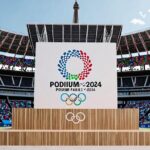Overview of Sponsorship Dynamics for the 2024 Paralympic Games in Paris
The upcoming 2024 Paralympic Games in Paris, which are scheduled to take place from August 28 to September 8, stand to gain significantly from the marketing revenues generated alongside the Olympic Games. Following a contract established three years prior to the events, the top Olympic sponsors also retain marketing rights for the Paralympic Games. Thus, with the exception of one additional sponsor, the sponsors for both events remain identical. The sole exception is Ottobock, a specialist in prosthetics, orthotics, and wheelchairs, which has garnered the designation of an additional top sponsor due to a unique clause that allows for its inclusion given that its business does not overlap with the other Olympic sponsors.
The current partnership agreement between the International Olympic Committee (IOC) and the International Paralympic Committee (IPC) is intended to last until 2032, signaling a long-term collaboration wherein the IPC will continuously sell its marketing rights to the IOC. IOC President Thomas Bach has remarked upon the considerable financial compensation that the IPC will acquire from this joint marketing initiative, estimating it to be in the double-digit millions. Historically, figures from the IPC indicate that they received $14 million from the IOC for marketing and television rights during the 2010 and 2012 Paralympic Games, in contrast to the IOC’s expected earnings of approximately $3 billion linked to the 2022 Winter Games in Beijing and the 2024 Summer Games in Paris, highlighting the relatively modest share received by the IPC.
As global interest in the Paralympic Games escalates, bolstered by societal pressures and sponsorship support, the upcoming events in Paris are set to reach an audience spread across at least 160 countries. For instance, the American broadcaster NBC has significantly increased its coverage from merely six hours during the 2012 Paralympics in London to over 1,600 hours for the Paris event, where ARD and ZDF will present live coverage on alternate days, similarly to the preceding Olympic Games. Notably, certain prime evening slots will be dedicated to showcasing events, with ARD airing the long jump final featuring prominent athlete Markus Rehm in prime time, a move that signifies progress in the visibility of Paralympic sports.
The enhanced television exposure has naturally piqued the interest of sponsors and the broader sports industry regarding the Paralympic Games. Paris, as the host city, has furthered this initiative by promoting a cohesive image for both the Olympic and Paralympic events, exemplified by the use of shared branding, with the only distinction being the inclusion of three colored arches instead of the traditional five Olympic rings.
Prominent collaborations between major sponsors include joint endeavors focused on both Olympic and Paralympic athletes. Campaigns such as Citi’s “Stare at Greatness” and Toyota’s “Start Your Impossible” illustrate this trend, with Visa financially supporting 46 Paralympians alongside 92 Olympians. Furthermore, the support of athletes with disabilities is exemplified by Toyota, which has pledged support to seven out of 13 sponsored athletes, and Bridgestone, which exclusively sponsors Paralympic athletes in the United States.
The integration of sponsor participation across both athletic events reflects a strategic alignment that has been in effect since 1988 for Summer and 1992 for Winter Games. The initial agreement between the IOC and IPC to host both sets of Games within the same city marked a significant departure in Olympic history; this agreement has since been extended until 2032 and emphasizes the collaborative relationship of both committees, with the IPC President also holding membership within the IOC.
As for the roster of Worldwide Paralympic Partners for Paris 2024, it mirrors that of the Olympic Games, with Ottobock serving as the additional global partner. The TOP sponsorship program has undergone adjustments since the last Olympic cycle, with Allianz and Deloitte replacing Dow and GE. The financial commitments for these partnerships likely amount to staggering sums, with veteran partner Coca-Cola and the Chinese Mengniu dairy company collectively contributing an estimated $3 billion for the Olympic Games spanning 2021 to 2032.
Ultimately, the combining of the Olympic and Paralympic marketing efforts has set a precedent in the realm of sports sponsorship and is indicative of the growing recognition and celebration of disability sports on a global platform. The endorsements and partnerships forged during this period will undoubtedly amplify the narratives of resilience and strength embodied by Paralympic athletes, paving the way for broader acceptance and support for inclusivity in sports.







Post Comment